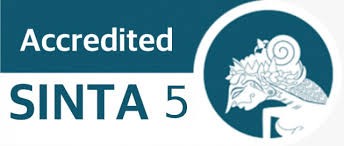Peningkatan Hasil Belajar Matematika Siswa Kelas II melalui Tipe Teams Assisted Individualization
DOI:
https://doi.org/10.47662/farabi.v8i1.992Abstrak
By using the Teams Assisted Individualization (TAI) learning approach, this study seeks to enhance the learning results of second-grade pupils in mathematics. TAI is a kind of cooperative learning that allows students to study based on their unique learning styles by fusing solo and group projects. It is anticipated that this model will enhance students' comprehension of fundamental mathematical ideas, particularly addition and subtraction. This study is a case study that was carried out at SDN Pondok Ranji 04 using a two-cycle classroom action research (PTK) methodology. Planning, action implementation, observation, and reflection were the four phases that made up each cycle. Student surveys, learning outcome assessments, and observation were used to gather data. The findings demonstrated that using the TAI model greatly enhanced student learning outcomes. Although it had not yet reached 80%, the growth from cycle I was carried over to cycle II. The TAI model's implementation in cycle II was successful in raising learning outcomes to 90.2%. This result demonstrates that the TAI model works well for both enhancing learning outcomes and fostering a more engaging and joyful learning environment.
Referensi
A Nazra, Y Asdi, Zulvera. Generalized Intuitionistic Fuzzy Soft Matrices And Their Application. Journal Of Physics: Conference Series
Agustini, K., Wahyuni, D. S., Mertayasa, I. N. E., Wedhanti, N. K., & Sukrawarpala, W. (2021). Student-centered learning models and learning outcomes: Meta-analysis and effect sizes on the students’ thesis. Journal of Physics: Conference Series, 1810(1). https://doi.org/10.1088/1742-6596/1810/1/012049
Anggraini, TP, Abbas, N., Oroh, FA, & Pauweni, KA (2022). Pengaruh kecerdasan emosional dan motivasi belajar terhadap hasil belajar matematika siswa. Jurnal Pendidikan Matematika Jambura , 3 (1), 1-9.
Damayanti, T., Takaendangan, B. R., Kobandaha, P. E., & Gombah, W. (2023). Digital native preferences in how to learn mathematics: A qualitative study of preservice mathematics teachers. Farabi Journal of Mathematics Education, 4(1), 75–80.
Lesmana, W., Sutisnawati, A., & Maulana, L. H. (2023). Model Pembelajaran Kooperatif Tipe Team Assisted Individual Untuk Meningkatkan Keaktifan Belajar Siswa. Jurnal Educatio FKIP UNMA, 9(3), 1308–1305. https://doi.org/10.31949/educatio.v9i3.5671
Mangelep, N. O., Tiwow, D. N. F., Sulistyaningsih, M., Manurung, O., & Pinontoan, K. F. (2023). The Relationship Between Concept Understanding Ability And Problem-Solving Ability With Learning Outcomes In Algebraic Form. INNOVATIVE: Journal Of Social Science Research, 3(4), 4322–4333. http://j-innovative.org/index.php/Innovative/article/view/4050%0Ahttps://j-innovative.org/index.php/Innovative/article/download/4050/2877
Megawati, Y. D. N., & Sari, A. R. (2012). Model pembelajaran kooperatif tipe team assisted individualization (TAI) dalam meningkatkan keaktifan siswa dan hasil belajar akuntansi siswa kelas XI IPS 1 SMA Negeri 1 Banjarnegara Tahun Ajaran 2011/2012. Jurnal Pendidikan Akuntansi Indonesia, 10(1).
Murtafiah, W., & Firdaus, A. M. (2022). Pengaruh Kecerdasan Emosional Terhadap Hasil Belajar Matematika Kelas Viii. Jurnal Penalaran Dan Riset Matematika, 1(1), 21–29. https://doi.org/10.62388/prisma.v1i1.86
Naziah, S. T., Maula, L. H., & Sutisnawati, A. (2020). Analisis keaktifan belajar siswa selama pembelajaran daring pada masa covid-19 di sekolah dasar. Jurnal Pendidikan Sekolah Dasar Ahmad Dahlan, 7(2), 109-120.
Oktaviandy, N., 1, M., Trifena Tarusu, D., Ester, K., Ngadiorejo, H., & Bumbungan, S. J. (2023). Local Instructional Theory: Social Arithmetic Learning Using The Context Of The Monopoly Game. Journal of Education Research, 4(4), 1666–1677.
Rohmatin, P. A., Studi, P., Ekonomi, P., Pendidikan, F., Pengetahuan, I., & Bojonegoro, I. P. (2024). MENGGUNAKAN MODEL PEMBELAJARAN KOOPERATIF TIPE TEAMS GAMES TOURNAMENT DI KELAS VII H SMP NEGERI 1 KALITIDU.
Saepuloh, A., Rosfiani, O., Hermawan, C., Sutiawati, & Apriyana, M. (2021). Teacher’s Efforts to Enhance Students’ Competence in Madrasah Ibtidaiyah in Science Skills and Academic Achievement. Journal of Physics: Conference Series, 1764(1). https://doi.org/10.1088/1742-6596/1764/1/012095
Somayana, W. (2020). Peningkatan Hasil Belajar Siswa melalui Metode PAKEM. Jurnal Pendidikan Indonesia, 1(03), 283–294. https://doi.org/10.59141/japendi.v1i03.33
Tani, K. F. T., Runtu, P. V. J., & Sumarauw, S. J. A. (2024). Pengaruh Model Team Assisted Individualization Terhadap Hasil Belajar Siswa Pada Materi Sistem Persamaan Linear Dua Variabel. Jurnal Riset Dan Inovasi Pembelajaran, 4(2), 726–739. https://doi.org/10.51574/jrip.v4i2.1455
Tristiana, V., Yoviyanti, R., Afif, K., & Shohenuddin, S. (2023). Pemberdayaan Guru dan Fasilitator dalam Pembelajaran Kelas Rangkap pada Sanggar Belajar Malaysia Berpendekatan Profil Pelajar Pancasila. Buletin KKN Pendidikan, 5(1), 96–106. https://doi.org/10.23917/bkkndik.v5i1.22889
Unduhan
Diterbitkan
Cara Mengutip
Terbitan
Bagian
Lisensi
Hak Cipta (c) 2025 Okta Rosfiani, Allma Sahara, Miftakhul Ilmi Mustofa, Lukman Effendy, Sayyid Ali Furqon

Artikel ini berlisensiCreative Commons Attribution-ShareAlike 4.0 International License.







